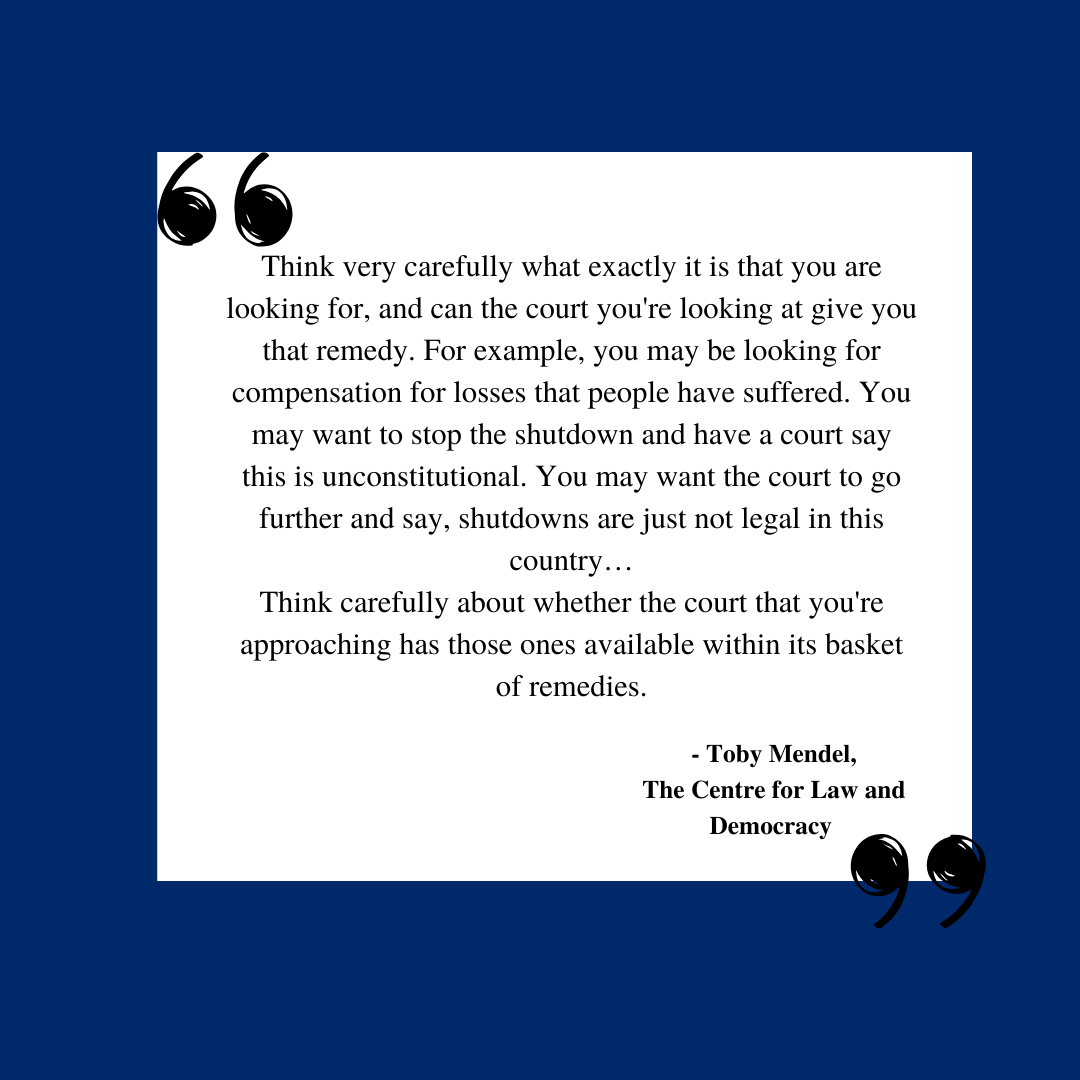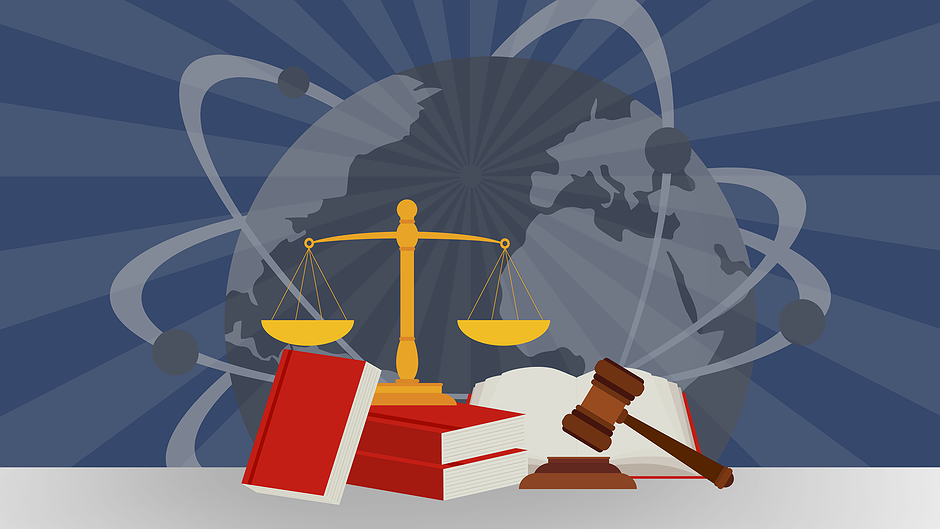
Challenges & Opportunities for Strategic Litigation Against Internet Shutdowns
Strategic litigation has proven effective not only for invalidating ongoing shutdowns but also for setting standards against future disruptions and seeking compensation for harm. Recent cases include the ECOWAS court ruling that Togo's internet shutdown violated the right to freedom of expression, the suit against the Indonesian government's shutdown that initially ruled the shutdown illegal but was later overturned, and the ECOWAS case ordering Nigeria not to block X(Twitter).
As part of the Advocacy Assembly Shutdown Academy, we hosted a panel discussion on strategic litigation against internet shutdowns. In this panel, experts shared their experiences challenging shutdowns in court at national and regional levels and shared best practices for setting legal strategies.
We wish to express our profound appreciation to all the experts that joined us:
- Toby Mendel, Executive Director of the Centre for Law and Democracy
- Mojirayo Ogunlana Oluwatoyin, Executive Director, DIGICIVIC Initiative
- Damar Juniarto, Executive Director at Southeast Asia Freedom of Expression Network
- Peter Micek, General Counsel and UN Policy Manager at Access Now
- Saba, Senior Legal Officer at Media Defence
- Radhika Jhalani, Counsel, Software Freedom Law Centre
- Laura Schwartz-Henderson, Moderator
Now, let's get a glimpse into key insights shared on the panel:
Toby Mendel, executive director of the Centre for Law and Democracy, initiated the conversation by underscoring the significance of partnering with diverse groups. He emphasized the necessity of taking into account the court's array of remedies.
**
Saba, senior legal officer at Media Defence, spoke of the ongoing sophistication of shutdowns and various strategies to restrict access, including partial shutdowns and bandwidth throttling.
“Shutdowns are becoming much more sophisticated and they're becoming much harder to prove. And with national security, for example, being invoked for localized shutdowns. It's making it much more difficult to litigate and argue that the measures that are being taken by the state are never an appropriate step.”
She then emphasized the significance of involving local organizations and lawyers in identifying and securing cases.
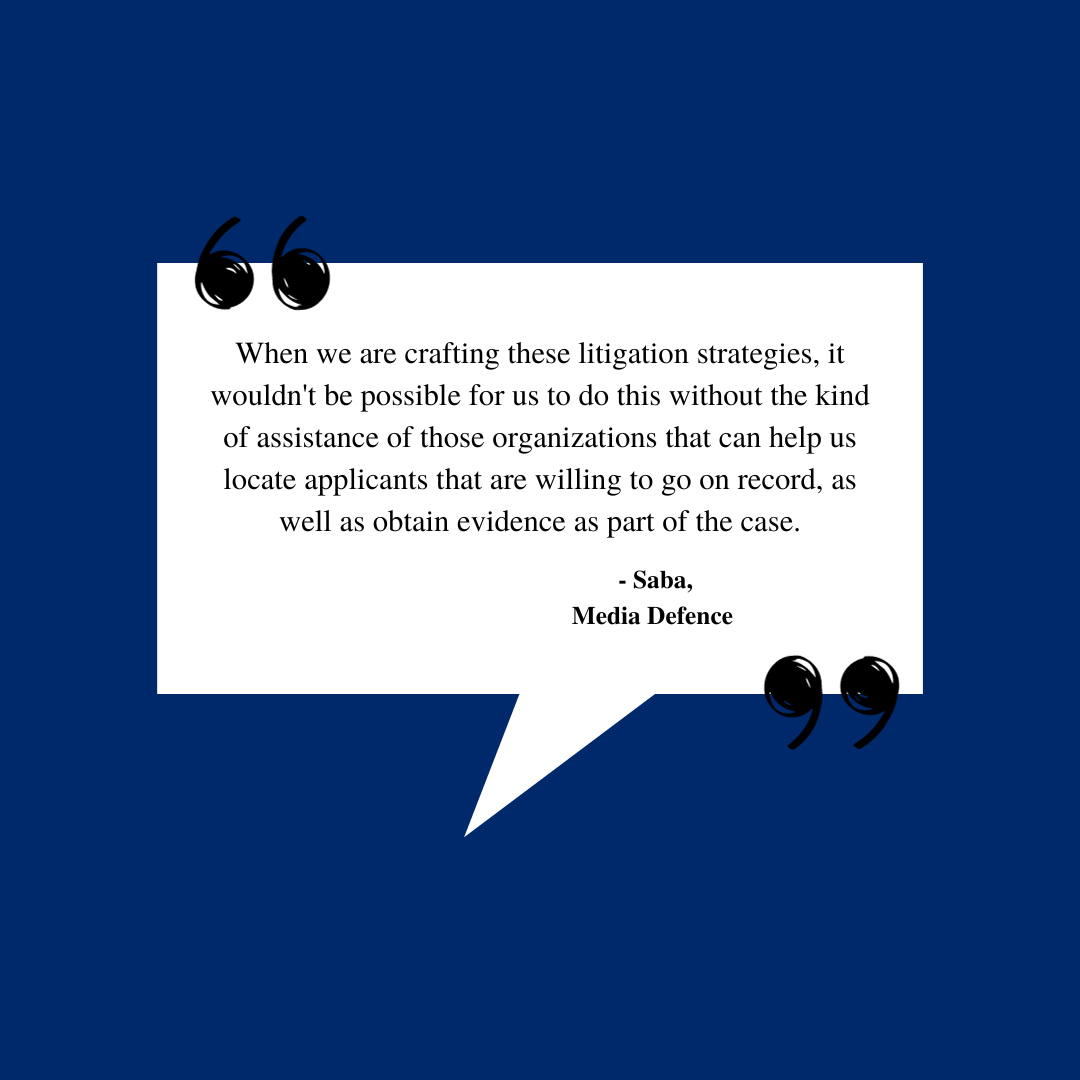
Challenging shutdowns in Nigeria, Indonesia and India
Mojirayo Ogunlana Oluwatoyin, from the DIGICIVIC initiative, provided a comprehensive overview of litigation cases in Togo and Nigeria. Drawing from her own experience as a digital rights lawyer, she shared valuable practical insights:
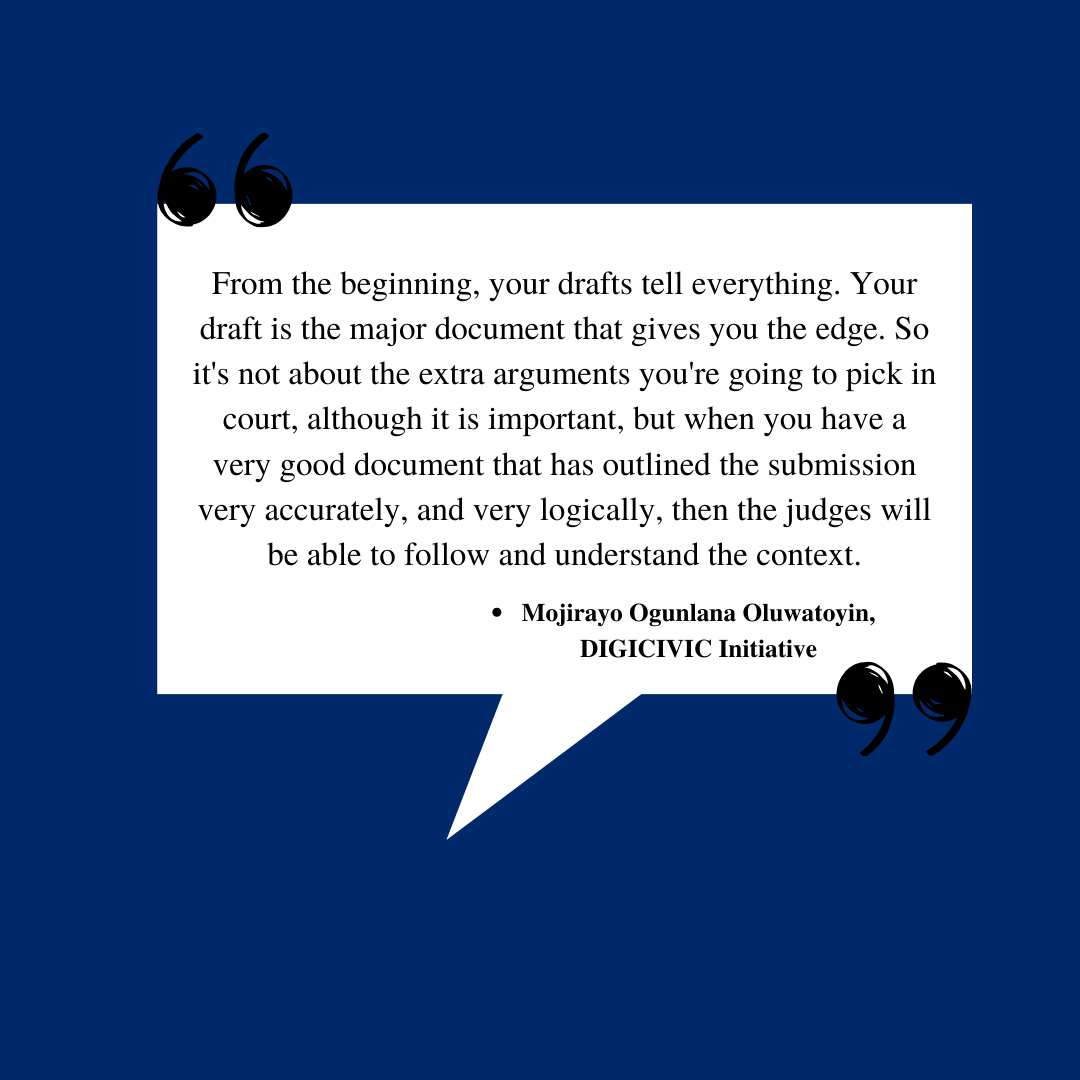
Bringing us to Indonesia, Damar Juniarto, representing SAFEnet, explored the legal strategy employed to challenge the internet shutdown in West Papua. He detailed the court's analysis using the three-part test and provided insights into the legal team's arguments regarding the unlawfulness and non-necessity of the shutdown.

Radhika Jhalani, representing the Software Freedom Law Centre, underscored the emerging trend of temporary, region-specific shutdowns and discussed the legal jurisdictions surrounding them.
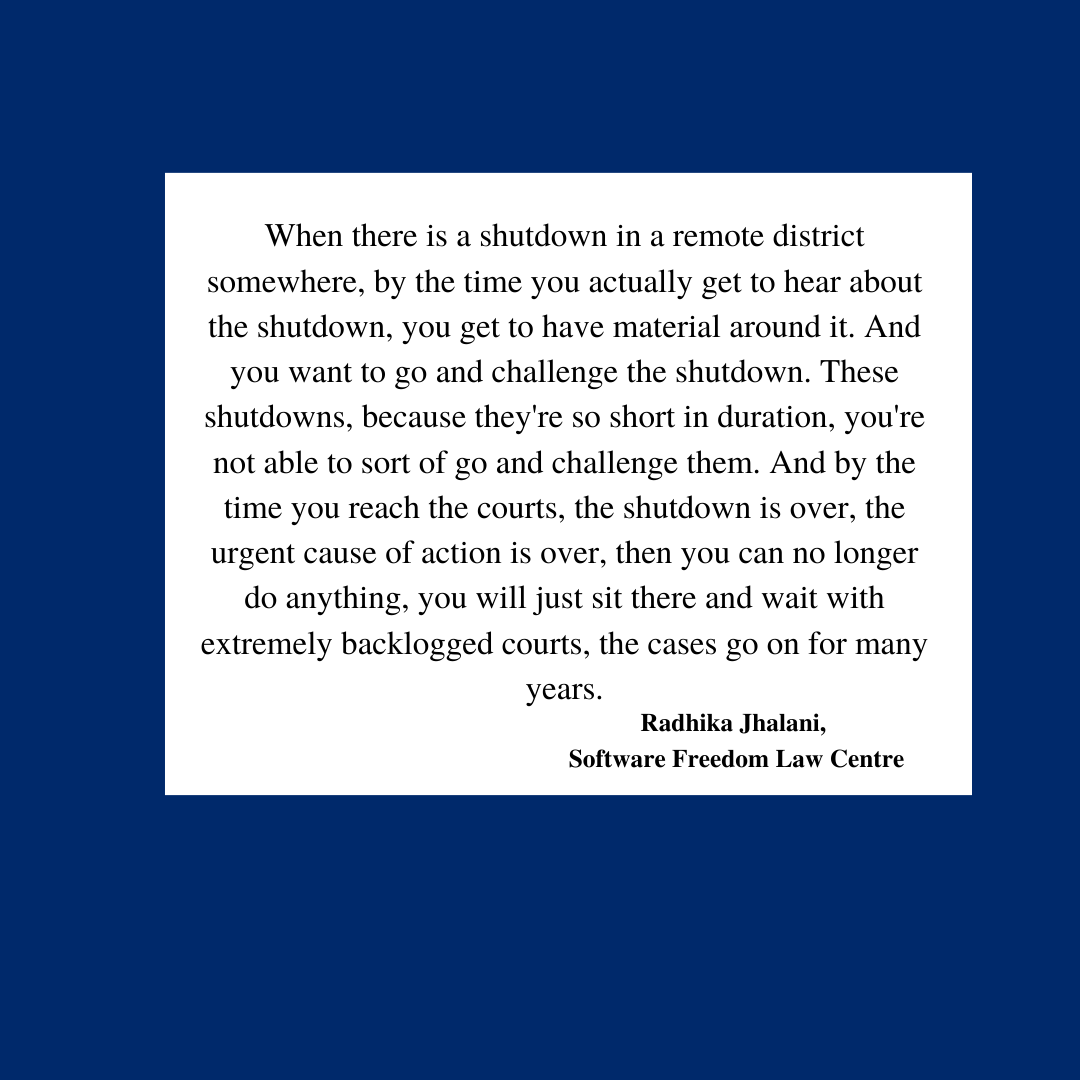
To encounter these time and resource restrictions, Radhika Jhalani shared the digital rights community's efforts to engage and train lawyers across the country.
In his remarks, Peter Micek of Access Now called for prioritizing the measurement and documentation of shutdowns to inform robust legal responses. To further broaden the scope of litigation strategy, he shared the effective approach of using procedural claims when relevant and highlighted the importance of incorporating other forms of public advocacy and corporate accountability.
He also urged proactive legislation to establish the norm that internet access is a prerequisite for fundamental rights.
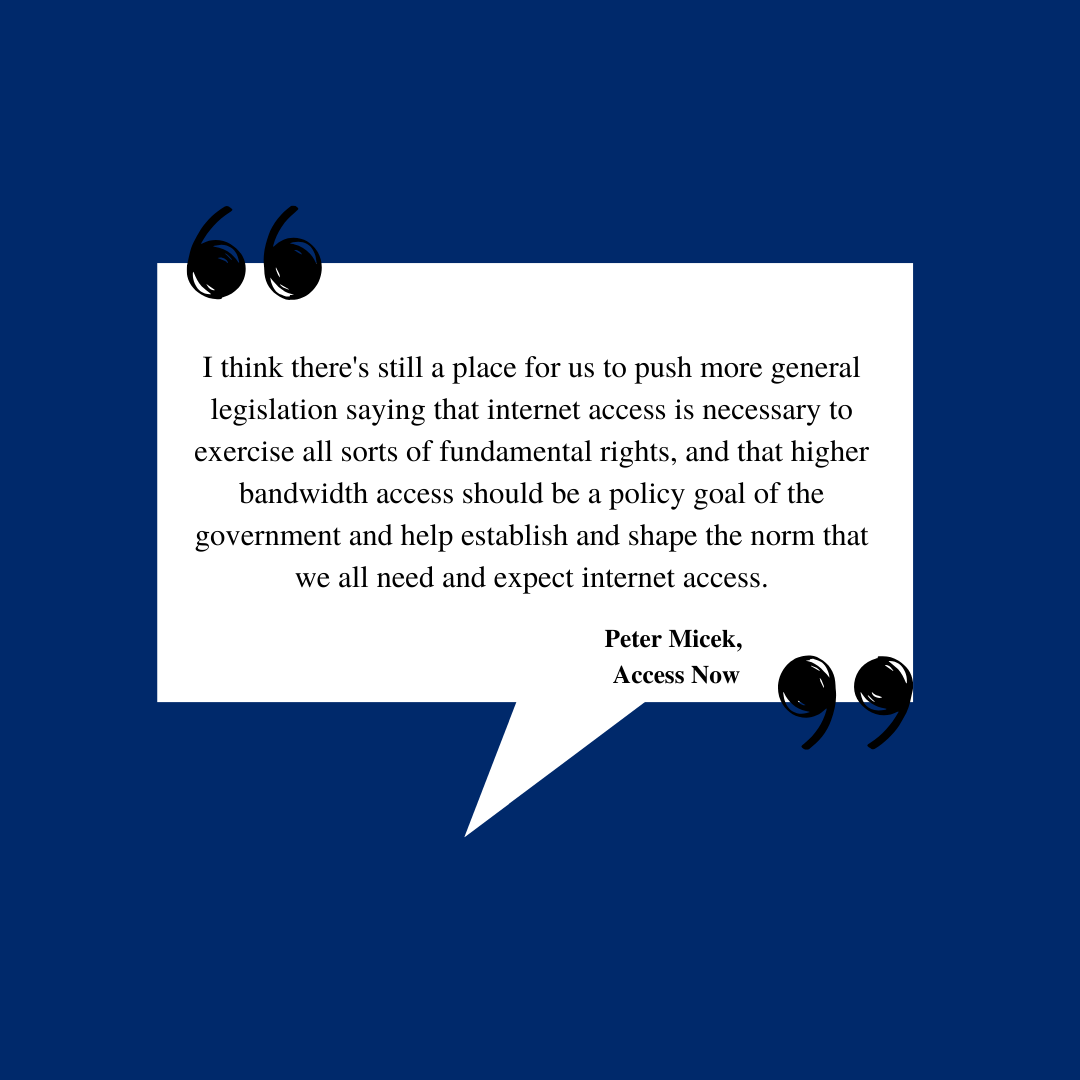
This event was an opportunity to strategize long-term support for legal advocates in addressing internet shutdowns. To learn in detail how to use strategic litigation, join our course in partnership with the Center for Law and Democracy.
Sign up here!
Related courses

90 mins
 School of Data
School of Data
90 mins
 School of Data
School of Data Rory Peck Trust
Rory Peck Trust
50 mins
 Rory Peck Trust
Rory Peck Trust
Blogs

6 useful resources for journalists covering Covid-19
With a global pandemic spreading throughout the world, journalists are under increasing pressure to report accurate and relevant news for the masses. Often when covering a crisis, those on the reporting frontlines compromise their physical safety and mental health. To show some solidarity, the Advocacy Assembly team curated a list of useful resources from other organisations leading the way on this.

5 ways to find data for your next story
Data journalism is fast becoming a big trend in newsrooms across the globe. However, data isn’t always so easy to find. Here are five ways to get data for your next article.




